Built In & Portable Hot Water Heater Options for Camper Vans
When living on the road in a camper van or RV, hot water is one of those things that makes life feel more comfortable. Hot water may be needed for doing dishes, showering, or washing your hands. Depending on your road lifestyle, various hot water heaters can be utilized! For van lifers who desire on-demand and (relatively) endless hot water, a tankless hydronic heating system might be the best bet ($$$). However, for van lifers who want hot water to do dishes but don’t shower in their camper vans, something as basic as a kettle to heat water would do the trick ($).
Throughout this guide we will dig into points of consideration when choosing a hot water heater for your camper van, and then end with recommendations and their analysis across the discussed points.

** Disclaimer: This blog post contains various affiliate links that provide a small kickback to us, at no additional cost to you. We truly appreciate your support if you choose to purchase through these! **
Hot Water Heater Points to Consider
Heating water is a tough task, for this reason, water heaters generally tend to be power or fuel hungry. Additionally, the heated up water needs a place to stay for some time so these water heaters can need space within your camper van. Below, we address these power and space considerations in more detail.
Propane vs. Electric Powered Water Heaters
In order to heat water, you need a fuel source. There is no way around this. For camper vans and RVs, the ideal fuel type is either electrical, propane, or coolant.
Electric Hot Water Heaters
A common (but power hungry) way to heat water in camper vans and RVs is with electricity. By supplying power to a tank unit, you are able to heat water to a designated temperature. However, units like these are extremely power hungry and you should be sure to properly size your electrical system if you plan to heat water frequently. (Don’t worry, we have a guide for that!) Additionally, electric hot water heaters suited for camper vans are all “tank” water heaters; therefore, you are limited to the size of the water tank that is heated (see Tank Electric Water Heaters below). There are tankless electric water heaters but they pull so much power that you could not have an inverter that big in your camper van.
Propane Hot Water Heaters
Propane hot water heaters are electricity efficient as they use propane as their main source of fuel. This type of heater is typically tankless (more on that below).
Hydronic Hot Water Heaters (Coolant)
Coolant fueled hot water heaters do not use much electricity. Rather, they use heated coolant to transfer heat to water.
There are 2 methods for this:
- If you have an existing hydronic heating system, you can install a heat exchanger plate, and the necessary plumbing, to create this on demand hot water (see Hydronic Heaters below). This method is energy efficient in terms of electricity but complex to install!
- There are also “jacket style” tank water heaters. These have a stainless steel water tank surrounded by a jacket filled with coolant that can be heated with electricity, or when driving via engine coolant (see IsoTemp Spa Hot Water Heaters below).
Tank vs. Tankless Water Heaters
The difference between tank and tankless hot water heaters is as straight forward as their names!
A tank water heater heats a physical, and limited, tank of hot water. This requires more space; however, it also allows you to heat water once and have it sit around for a while. This could be beneficial if you are using an electric hot water heater. Because these pull a lot of power, you could only heat water when you drive and your alternator is pushing charge to your batteries at a high rate. Then, you will have a tank of hot water when you arrive to your campsite for several hours.
A tankless hot water heater, well.. doesn’t have a tank. It heats water as it passes through the heater therefore your hot water is relatively endless. Generally, tankless water heaters are more portable, provide on demand hot water, and are rated in how many gallons per minute they can output. Additionally, they are often easier to install.
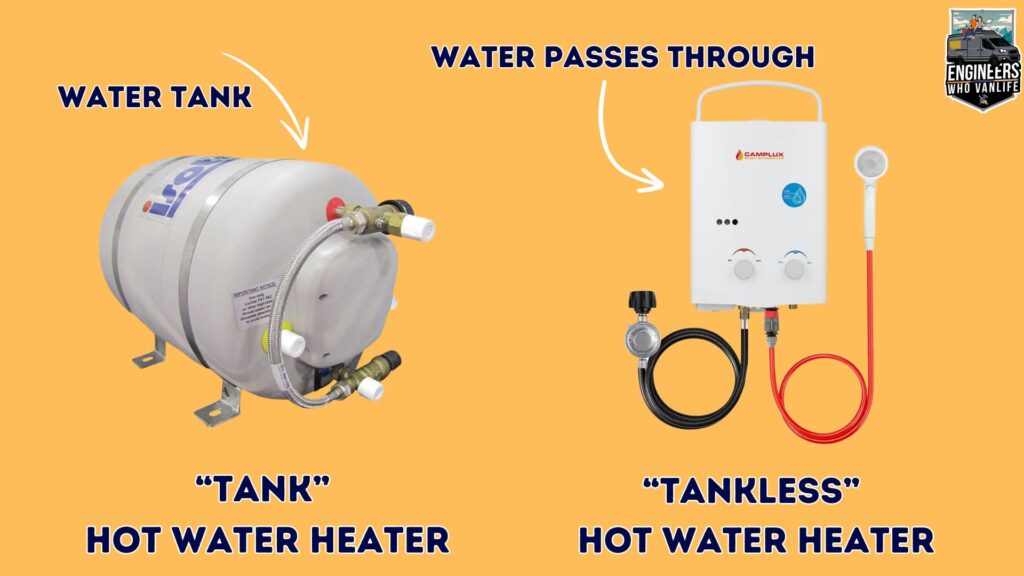
Built in vs. Portable Hot Water Heaters
A final point to consider when choosing a hot water heater for your camper van, or RV is install method. There are built in and portable water heaters of all the fuel and tank/tankless types mentioned above. The answer simply comes down to your use case.
“Built In” Hot Water Heaters:
- More complex to install into existing water system
- Take up space with unit and plumbing
- Generally more expensive
- Great for all types of hot water usage (sink, shower, etc)
“Portable” Hot Water Heaters are:
- Easier to install (isolated from water system except for inlet)
- Take up less space
- Generally cheaper
- Great for outdoor shower use
- Not compatible with any of your built in points of use: hand washing at sink, doing dishes, etc.
Hot Water Heater Recommendations for Camper Vans
By now you should have a general idea of the type of hot water heater that will best fit your van life. With that, let’s move on to our recommendations starting with easiest and simplest, and ending with most complex and expensive.
1. Tea Kettle or JetBoil
The simplest (get ‘er done) solution for hot water in a camper van specifically for doing dishes, or making coffee is a tea kettle. Yup! You heard it here first! If all you really want hot water for is doing dishes, we recommend you stick to simplicity and opt for a good old fashion electric tea kettle or a non-electric JetBoil for “pour over dishes”. Even better, opt for a collapsible tea kettle (ours is pictured below) for a van life friendly version!
Cost: < $50 (or $100 for JetBoil)
Power Usage: Can be high but only for a few minutes. Larger electric tea kettle boils at 1500W, while the collapsible tea kettle (smaller) boils at 700W. JetBoil is gas powered.
Hot Water Heater Type: Get ‘er done!
Great for:
- Washing dishes
- Heating water for coffee or tea
Not great for:
- Anything else…

2. Solar Hot Water Showers
If you’re only requirement for hot water is for showering, or perhaps you want to combine it with option 1 (electric kettle), you might want to look at solar showers! Solar showers are portable systems that provide heated water at a low pressure for an outdoor shower. These are incredibly simple as you do not need to plumb them. However, this comes at the caveat that they only heat up when the sun it out and are limited in size.
Cost: < $50
Power Usage: None, hence solar (!).
Hot Water Heater Type: Portable and “Tank” (?) You must load the system with water to be heated.
Great for:
- Showers
Not great for:
- Anything else… maybe combine this with Option 1 for dishes!
3. Propane Tankless Hot Water Heaters
Tankless propane hot water heaters are units that heat water as it passes through. These units are powered by propane and are often limited to 1-2 gpm of output. With anything propane, these need to be vented. In fact, most van lifers opt for portable versions and hang these units on their back doors and shower outside! However, there are also units that you can install in-line to use with your existing water system.
- Portable:
- This Camplux Tankless Hot Water Heater ($140) is mainly used for showers and produces 1.32 gpm of hot water. It has 2 inlets: one for water, and the other for propane, and 1 output. This type of hot water heater cannot be plumbed to your existing water system points of use.
- This Gasland Tankless Hot Water Heater ($170) is very similar to the Camplux one above. The main difference is the slighty faster output of 1.58 gpm. This type of hot water heater cannot be plumbed to your existing water system points of use.
- In-line:
- RecPro RV Tankless Water Heater
- RVPartPro Tankless Water Heater
- Both of the above hot water heaters are installed in-line with your existing water and propane systems. These MUST be vented outside. For this reason, they are more easier installed in RVs than camper vans.
Cost: ~ $150 – $200 for portable, ~ $500 for in-line.
Power Usage: Minimal due to propane usage. Either D-cell batteries or 12V.
Hot Water Heater Type: Portable (if chosen), propane fueled, tankless
Great for:
- Showers
- Other outdoor use
- If in-line option chosen: doing dishes and making coffee.
Not great for:
- If portable option chosen: doing dishes, or making coffee.

4. Tank Electric Water Heaters
Tank electric water heaters have a specified tank size of water that can be heated at once via electricity. These are relatively straight forward to install and are placed in-line with your existing water system so your points of use will receive hot water. Most of these tank hot water heaters are lined with glass so be sure to mount these extra sturdy.
- Camplux Mini Tank Electric Hot Water Heater (1.3, 2.5, 4, 6 gallon options)
- Bosch Tronic 3000T Electric Mini Hot Water Heater (2.5, 4, 7 gallon options)
Cost: $150-$200 for 4 gallon, $350 for 7 gallon.
Power Usage: High! 1400 Watts. Best to heat water while charging via DC-DC if you can!
Hot Water Heater Type: Built in + tank
Great for:
- Showers
- Dish washing
- Hot water at all points of use!
Not great for:
- Space constraints
5. Bonus: Heater + Hot Water Tank
The AquaHot Gen 1 Heater + Hot Water Heater is a dual solution that doesn’t quite fit into any of our categories here. This unit is low power consumption as it is powered by either gasoline, diesel, or propane. It is a high BTU output heater that can be used up to 15,000 feet, and it can heat up to 2.64 gallons of water at once with the same fuel source.
Cost: ~$2,500
Power Usage: Low! At most about 15 amps at 12V.
Hot Water Heater Type: Built in + tank + gasoline (or diesel or propane)
Great for:
- Those looking to install a gasoline high altitude heater
- Showers
- Dish washing
- Hot water at all points of use!
Not great for:
- Using a lot of hot water at once (takes 20 min for about 2.5 gal)
6. Tank Coolant Heaters - IsoTemp Spa
Tank coolant heaters such as the IsoTemp Spa hot water heaters use coolant “jackets” to heat a tank of water. This coolant can be heated as you are driving off of your engine coolant loop or via 120V electricity! The IsoTemp Spa series offers tanks from 4 gallons to 11 gallons. In the photo below, we have the IsoTemp Spa 15L (4 gallon) mounted on rails on 80/20 beneath our bed.
Cost: ~$1,000
Power Usage: Minimal unless using electric heating of coolant at 750W instead of engine heating.
Hot Water Heater Type: Built in + tank
Great for:
- Showers
- Dish washing
- Hot water at all points of use!
Not great for:
- Space constraints (see below for size)

7. Hydronic Heaters
Hydronic heating systems produce on demand, tankless, and energy efficient hot water. They do this on the basis of coolant loops. Heated coolant is circulated around various heat exchangers. These heat exchangers take in hot coolant and output hot water, or hot air. Hydronic heating systems are mainly installed for their energy efficient high BTU output of hot air at altitude. We do not recommend installing a hydronic heating system just for hot water as they are $$$ and complex to install. However, if you plan on traveling to cold temperatures and altitude, this is a great solution for you!
- Eberspaecher AquaSystem (currently Diesel only, Gas coming soon!)
- Timberline System
- AquaHot 125G (or D for diesel)
Cost: ~ $5,000
Power Usage: Minimal! You need a little electricity to heat the reservoir of coolant, but it holds heat extremely well.
Hot Water Heater Type: Built in + tankless + energy efficient
Great for:
- Everything
Not great for:
- The budget (!!)
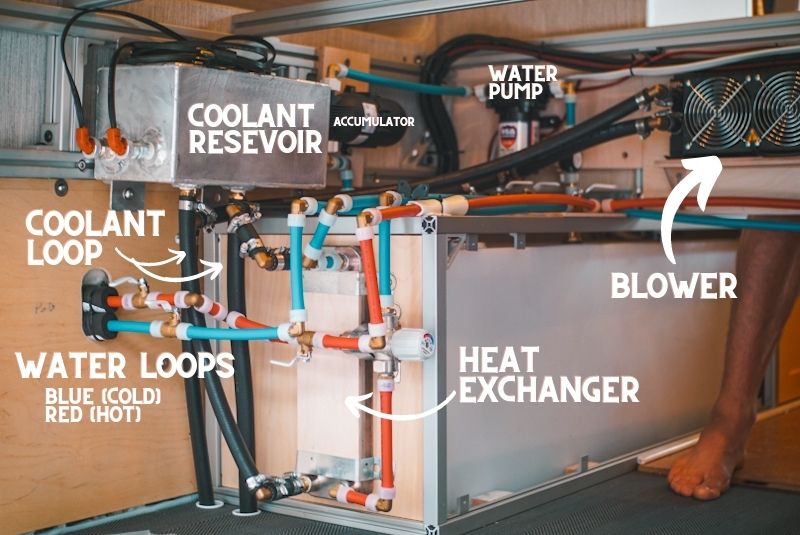
Related Reading to Camper Van Hot Water Heaters
As you can see from this guide, the range of price and complexity for hot water heaters in your camper van is great. We hope that you can find one that fits your exact van life needs!
If you found this guide useful, you might enjoy some similar guides:
Thanks for being here! Happy building!
Eric + Colby
✉️ Join our mailing list for more content!
🙏🏽 If you are looking for more 1:1 van build help, we are here to help via Consulting or Travel Van Building.
[Start Here] Beginner Guides:
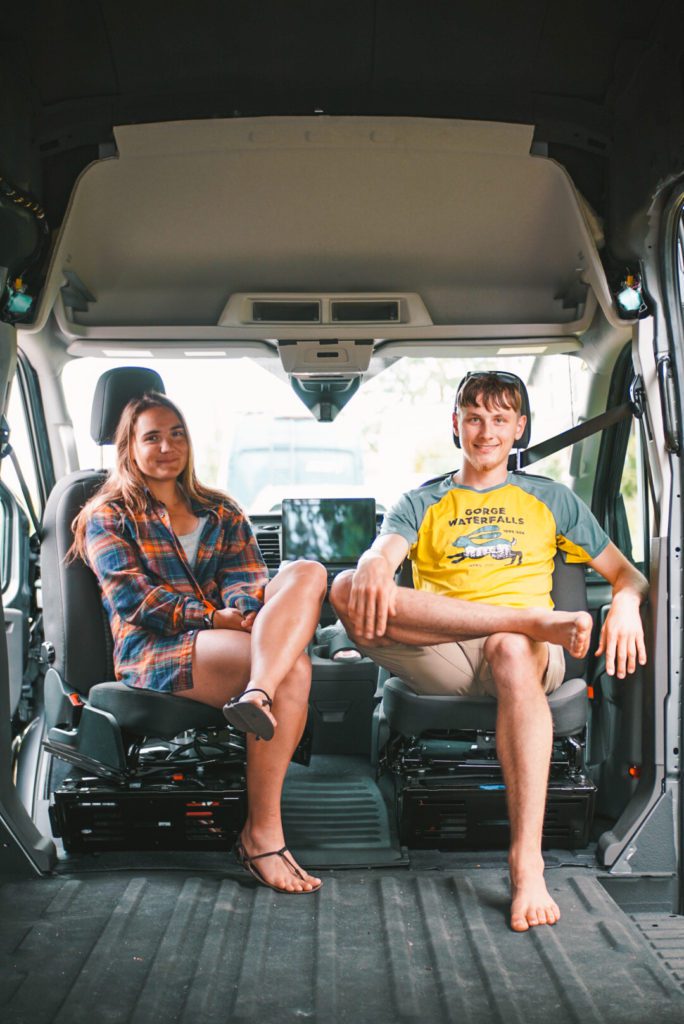


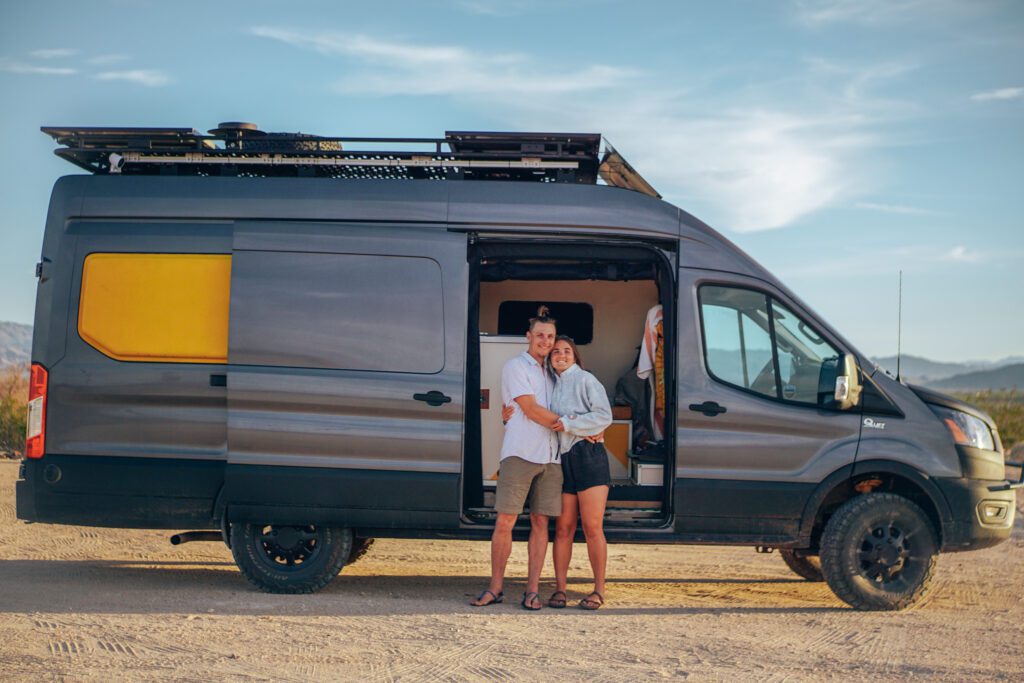

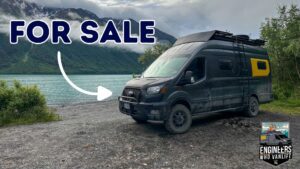
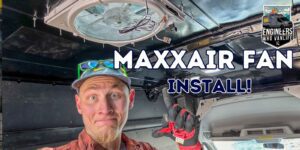

Comments 2
Hi there!
Love your site, so useful !
I’m starting a new build in a cargo enclosed trailer and was going through your water system section.
Why are you saying that tankless instant water heater cannot be plumbed inside existing plumbing system? Is the key work here “existing”?
The gasland models come with a BSP to NPT fitting. I just need to add NPT to OD (compression) fitting and can connect it to my valve.
Thanks to advise,
Mat
Author
Hey Mat! Perhaps I need to think of better wording there. These units can be plumbed ONTO existing systems but not in-inline. Meaning that these units can be a final output (ex: shower), but they cannot be added in-line between your water tank and sink, for example. Hope that makes sense… I will think about re-wording this better!